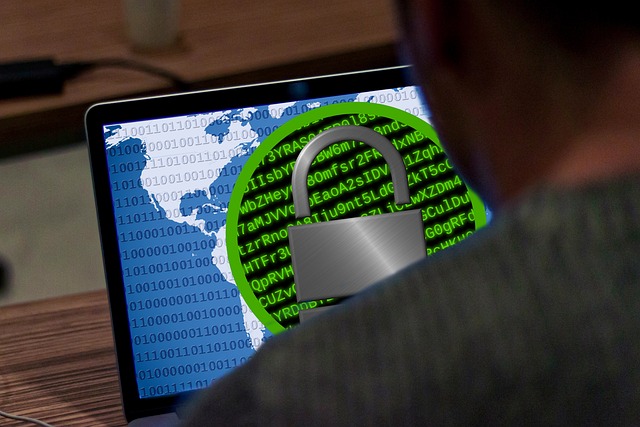Are you curious about the mysterious world of hacking a Facebook account? In an age where social media plays a pivotal role in our lives, the security of our online presence is paramount. From personal to professional information, it’s all stored on our social media profiles. But what if we told you that there are ethical ways to understand this process better? Join us on an exploration of the methods, tools, and ethical aspects of how to hack a Facebook account.
In a nutshell, hacking a Facebook account involves understanding the vulnerabilities within the system, but it’s crucial to emphasize that this exploration is purely for educational purposes. We’ll delve into the complexities, offering insights into the inner workings of Facebook’s security mechanisms and how they can be exploited. By the end of this article, you’ll have a deeper understanding of how hackers operate and, more importantly, how to protect your own online identity effectively.
With our years of experience, we will shed light on the ethical aspects of hacking Facebook, ensuring that you not only become aware of the risks but also gain insights into the responsibility that comes with understanding these techniques. So, without further ado, let’s embark on this educational and eye-opening exploration of “How to Hack a Facebook Account.” Are you ready to uncover the secrets of online security?

Facebook Password Cracking
Password cracking is one of the most conventional yet prevalent methods used by hackers to gain unauthorized access to Facebook accounts. It involves attempting to guess the account’s password through various means. Here are some common techniques:
1. Brute Force Attack: In a brute force attack, hackers systematically try every possible combination of characters to guess the password. These method can be time-consuming, but it’s effective if the password is weak or easily guessable.

2. Dictionary Attack: In a dictionary attack, hackers use a predefined list of common words and phrases to try and guess the password. This method is more efficient than brute force and is often successful when users have simple or easily guessable passwords.
3. Social Engineering: Sometimes, hackers don’t need to crack a password at all. They manipulate individuals into revealing their login credentials willingly. Social engineering techniques can include impersonation, baiting, or simply tricking users into providing sensitive information.
How to Hack a Facebook Account Through Phishing Attacks
Phishing attacks are deceptive strategies employed by hackers to trick users into revealing their login information. These attacks often involve creating fake websites or sending convincing emails that appear to be from trusted sources, such as Facebook itself.
Here’s how phishing attacks work:
- Fake Login Pages: Hackers create websites that look identical to the Facebook login page. Unsuspecting users enter their credentials, believing they are logging into their accounts, but they are actually providing their information to the attacker.
- 2. Email Scams: Phishers send emails that seem urgent or important, urging users to click on a link and log in. These links lead to fraudulent websites designed to capture login details.
- 3. Malicious Attachments: Some phishing emails contain malicious attachments or links that, when clicked, can compromise a user’s device and subsequently their Facebook account.
Keyloggers: Can it hack Facebook
Keyloggers are stealthy tools used by hackers to monitor and record keystrokes on a victim’s computer or device. By capturing every keystroke, including usernames and passwords, keyloggers are effective at stealing login information.

Here’s how they work:
1. Software Keyloggers: These are malicious programs installed on a victim’s device without their knowledge. They run in the background, recording every keystroke, which is then sent to the hacker.
2. Hardware Keyloggers: Hardware keyloggers are physical devices that can be inserted between the computer’s keyboard and the computer itself. They record keystrokes and store them for later retrieval by the attacker.
Want to unlock a phone?
Check our customized hacking tool that can remotely unlock a phone without touching it. This is the best hacking tool
Understanding these methods is crucial for safeguarding your Facebook account. In the next section, we’ll explore additional hacking methods and tools, so you can better protect your online presence. Remember, knowledge is your best defense against cyber threats.
Social Engineering
Social engineering is an artful manipulation of human psychology to trick individuals into revealing sensitive information or taking actions they wouldn’t ordinarily do. While it doesn’t involve technical hacking skills, it is a potent method employed by cybercriminals.
- Impersonation: Hackers may impersonate someone trustworthy, like a Facebook friend or support representative, to gain your trust. They then convince you to share your login credentials or personal information.
- Baiting: In baiting, hackers offer something enticing, like free software or downloads, which, when clicked or downloaded, install malicious software on your device, including keyloggers or spyware.
- Pretexting: This involves creating a fabricated scenario to gain access to your account. For instance, a hacker might pose as a Facebook employee and contact you, claiming there’s a security issue with your account that requires your login information to resolve.
Brute Force Attacks
Brute force attacks are a straightforward yet time-consuming method hackers use to crack passwords. They systematically try every possible combination until they find the correct one. To safeguard against brute force attacks:
- Use Strong Passwords: Employ long passwords with a mix of upper and lower-case letters, numbers, and special characters. Avoid easily guessable passwords like “password123.”
- Enable Account Lockout: Many online services, including Facebook, offer account lockout features that temporarily block access after several failed login attempts.
- Implement Two-Factor Authentication (2FA): Enable 2FA on your Facebook account. It adds an extra layer of security by requiring a second verification step, like a text message code or fingerprint scan.
Tools to Hack Facebook
Hackers often rely on various tools and software to aid their malicious activities. It’s important to understand these tools to better defend against potential threats.
Spyware
Spyware is malicious software that secretly monitors your online activity and can collect sensitive information. To protect against spyware:
- Install Anti-Malware Software: This is a software you install with physical access. You will need to touch the cell phone before you can monitor the targets phone. There are software like Nova Spy, Sphnix tracking app, Mspy, and Ultimate Phone Spy.

How Spyware Works and Its Functions
Spyware is a type of malicious software designed to secretly infiltrate and monitor a user’s computer or device without their knowledge or consent. Its primary purpose is to gather sensitive information and transmit it to a third party, often for malicious purposes. Here’s how spyware works and its various functions:
1. Infiltration and Concealment:
- Spyware typically enters a device or computer through deceptive means, such as bundling with legitimate software, masquerading as a useful application, or exploiting vulnerabilities in the operating system or software.
- Once installed, spyware often hides itself to evade detection. It may operate silently in the background, making it challenging for users to identify its presence.
2. Information Gathering:
- Spyware is programmed to collect various types of information, including keystrokes, browsing habits, login credentials, personal messages, and more.
- Keyloggers, a specific type of spyware, record every keystroke made by the user, capturing usernames, passwords, and other sensitive data.
3. Data Transmission:
- The collected data is usually sent to a remote server controlled by the attacker. This transmission can occur in real-time or at specified intervals.
- Spyware uses various communication methods, such as email, HTTP requests, or encrypted channels, to transmit stolen data securely.
4. Stealthy Operation:
- Spyware employs techniques to avoid detection. It may change file names, hide its registry entries, or use rootkit capabilities to disguise its presence in the system.
- Some spyware can self-replicate, spreading to other parts of the system to make removal more challenging.
Cybersecurity Laws
Understanding the legal framework surrounding cybersecurity is crucial, as hacking, even with good intentions, can have legal consequences. Different countries have varying laws, but common elements include:

- 1. Unauthorized Access: Unauthorized access to computer systems, including Facebook accounts, is illegal in most jurisdictions.
- 2. Data Breach Laws: Many countries have strict data breach notification laws, requiring organizations to inform users if their personal data is compromised.
- 3. Computer Fraud and Abuse Act (CFAA): In the United States, the CFAA is a federal law that prohibits unauthorized access to computer systems and networks.
- 4. EU General Data Protection Regulation (GDPR): GDPR imposes stringent data protection requirements on organizations operating within the European Union. It includes provisions for user consent, data breach reporting, and fines for non-compliance.
Ethical Hacking
Ethical hacking, also known as white hat hacking, refers to the practice of deliberately probing computer systems to identify vulnerabilities and weaknesses before malicious hackers can exploit them. Ethical hackers work to improve security and protect systems rather than compromise them. Key aspects of ethical hacking include:

- Certified Ethical Hacker (CEH): CEH is a professional certification that validates expertise in ethical hacking techniques. Ethical hackers are trained and certified to assess and enhance security measures. Ethical hackers can hack into Facebook account without compromising the detection.
- Penetration Testing: Ethical hackers often perform penetration testing, where they simulate cyberattacks to identify vulnerabilities and suggest remediation measures.
- Bug Bounty Programs: Many organizations run bug bounty programs, encouraging ethical hackers to report vulnerabilities in exchange for rewards.
- Legal Hacking Careers: Ethical hackers can pursue careers as cybersecurity experts, consultants, or work directly for organizations to strengthen their digital defenses.
Privacy Concerns
Protecting user privacy is paramount. It’s essential to be aware of the privacy concerns associated with hacking and the responsible disclosure of vulnerabilities. Responsible disclosure involves reporting identified vulnerabilities to the relevant authorities or organizations rather than exploiting them for personal gain.
Consequences of Hacking
Understanding the consequences of hacking is essential. Even with good intentions, hacking can lead to legal trouble and damage to your reputation. Always ensure that your actions align with the law and ethical standards.
Two-Factor Authentication (2FA)
One of the most powerful defenses against unauthorized access is implementing Two-Factor Authentication (2FA) on your Facebook account. Here’s how it works:
Enable 2FA: Go to your Facebook settings and enable 2FA. You can choose to receive a one-time code via SMS, use a dedicated authentication app, or rely on physical security keys.
Secure Backup Codes: Ensure you have secure access to backup codes in case you lose your primary 2FA method.
2FA adds an extra layer of protection, as even if a hacker manages to obtain your password, they won’t be able to access your account without the secondary authentication code.
Strong Passwords
Creating a strong, unique password is your first line of defense. Follow these tips to create a robust password:
Complexity: Use a combination of uppercase letters, lowercase letters, numbers, and special characters.
Avoid Predictable Information: Avoid using easily guessable information like your name, birthdate, or common words.
Longer is Better: Aim for passwords that are at least 12 characters long.
Unique for Each Account: Don’t reuse passwords across multiple accounts.
Security Settings For Facebook Account
Facebook provides various security settings that allow you to control who can access your account and what information is visible to others. Review and adjust these settings to enhance your security:
1. Privacy Settings: Customize your privacy settings to limit who can see your posts, friend requests, and personal information.
2. Login Alerts: Turn on login alerts to receive notifications whenever your account is accessed from an unrecognized device or location.
3. Trusted Contacts: Designate trusted contacts who can help you regain access to your account if you’re ever locked out.
Recognizing Phishing Attempts
Phishing attempts can be challenging to spot, but being vigilant can save you from falling victim to them:
1. Check URLs: Always double-check the URL of the login page. Ensure it starts with “https://www.facebook.com/.”
2. Verify Emails: Be cautious of unsolicited emails claiming to be from Facebook. Verify their legitimacy before taking any action.
3. Don’t Share Personal Information: Never share your login credentials, even if prompted by an email or website.
Security Software
Consider using reputable security software on your devices, such as antivirus and antimalware programs. These can help detect and prevent malicious activities, including keyloggers and spyware.

Social Media Safety on How to Hack a Facebook Account
Securing your Facebook account is just one part of maintaining overall social media safety. Here are some additional tips:
1. Privacy Settings on Facebook: Regularly review and update your privacy settings on Facebook to control who can see your information and posts.
2. Recognizing Suspicious Activity: Keep an eye out for unusual activity on your account, such as unfamiliar friend requests or posts you didn’t make.
3. Reporting Hacking Attempts: If you suspect your account has been compromised, report it to Facebook immediately for assistance.
4. Avoiding Suspicious Links: Be cautious when clicking on links shared by others, especially if they seem out of character or unusual.
5. Protecting Personal Information: Refrain from sharing sensitive personal information on your Facebook profile.
By implementing these security measures and staying informed about potential threats, you can significantly reduce the risk of your Facebook account being hacked. In the next section, we’ll discuss the importance of education and awareness in maintaining online security.
Online Safety Tips
Practicing online safety is paramount to protect not only your Facebook account but also your entire digital presence. A professional hacker can recover your Facebook Account.
1. Regular Password Changes: Change your passwords periodically to reduce the risk of unauthorized access.
2. Avoid Public Wi-Fi: Refrain from accessing sensitive accounts, including Facebook, while connected to unsecured public Wi-Fi networks.
3. Secure Devices: Keep your devices updated with the latest security patches and use reputable antivirus software.
4. Email Verification: Always verify the authenticity of emails, especially those requesting sensitive information or actions.
Password Best Practices For Not to Ge Your Facebook Password
Reiterating the importance of passwords, here are some best practices to keep in mind:
1. Unique Passwords: Use different passwords for different accounts. This way, if one account is compromised, others remain secure.
2. Password Managers: Consider using a password manager to generate and store complex, unique passwords securely.
3. Multi-factor Authentication (MFA): Beyond 2FA, explore MFA options when available for added security layers.
Recognizing Social Engineering
Awareness of social engineering tactics can help you steer clear of manipulative attempts:
1. Question Unusual Requests: Be skeptical of requests for personal information or actions that seem unusual or unexpected, even if they appear to come from trusted sources.
2. Verify Identities: Before sharing sensitive information or performing actions, verify the identity of the requesting party, especially in business or financial contexts.
Case Studies
Learning from real-world examples is an effective way to grasp the consequences of hacking and the importance of security. Explore case studies of notable hacking incidents to understand how they unfolded and how they could have been prevented.
In the final section of this guide, we’ll delve into emerging threats in the realm of Facebook account security and the evolving landscape of cyber threats. Staying informed about these developments is essential to keeping your online presence secure.
AI-Powered Attacks
As artificial intelligence (AI) technology advances, cybercriminals are harnessing its capabilities for malicious purposes. AI-powered attacks can:
1. Automate Phishing: AI can create highly convincing phishing emails or messages that adapt to individual targets, making them more challenging to detect.
2. Enhance Password Cracking: AI can accelerate the process of password cracking by analyzing patterns and predicting likely combinations.
3. Targeted Social Engineering: AI can analyze vast amounts of personal data to craft sophisticated social engineering attacks that prey on individual vulnerabilities.
Advanced Persistent Threats (APTs)
Advanced Persistent Threats are prolonged, highly targeted cyberattacks conducted by well-funded and organized threat actors. APTs often focus on espionage, data theft, or sabotage. Key characteristics include:
1. Stealth and Persistence: APTs aim to stay undetected for extended periods, often moving laterally within a network and using multiple techniques to maintain access.
2. Custom Malware: APTs frequently employ custom-designed malware tailored to the target, making them difficult to detect with conventional security measures.
3. Nation-State Involvement: Some APTs are attributed to nation-state actors with significant resources and motives.
Mobile Device Vulnerabilities
With the proliferation of smartphones, mobile device vulnerabilities have become a significant concern. Threats include:
1. Malicious Apps: Downloading apps from untrusted sources can lead to the installation of malicious software that compromises your device and accounts.
2. Phishing on Mobile: Phishing attacks are not limited to desktops. Mobile users are increasingly targeted through text messages and fraudulent apps.
3. Insecure Wi-Fi: Connecting to unsecured Wi-Fi networks can expose your device to various attacks, including eavesdropping on your internet traffic.
IoT-Related Risks
The Internet of Things (IoT) encompasses a wide range of interconnected devices, from smart thermostats to cameras. These devices often lack robust security features and can be vulnerable to attacks, potentially providing hackers with entry points to your broader digital life.
Social Media Impersonation
Impersonation on social media platforms, including Facebook, remains a persistent threat. Impersonators create fake profiles to deceive and manipulate users. Beware of friend requests from unfamiliar profiles, and report suspicious accounts.
Ethical Hacking
As hacking threats evolve, the demand for ethical hackers, also known as white hat hackers, continues to grow. Ethical hackers play a crucial role in identifying vulnerabilities before malicious actors can exploit them. This field offers exciting career opportunities, and ethical hackers are instrumental in enhancing cybersecurity.
Staying informed about emerging threats and evolving security measures is essential in safeguarding your Facebook account and overall online presence. By understanding these new challenges, you can adapt your security practices and remain one step ahead of potential attackers.
In conclusion, the digital world presents both opportunities and risks. While hackers continuously seek new ways to exploit vulnerabilities, individuals who prioritize security and remain vigilant can protect themselves effectively. By adhering to best practices, staying informed, and embracing ethical hacking principles, you can navigate the digital landscape with confidence and resilience.
Frequently Asked Questions (FAQs)
- Is it legal to learn ethical hacking?
- Yes, it is legal to learn ethical hacking. Ethical hackers operate within legal boundaries to improve cybersecurity.
- What should I do if my Facebook account is hacked?
- If you suspect your Facebook account has been hacked, change your password immediately, enable 2FA, and report the incident to Facebook.
- Can AI-powered attacks be prevented?
- While AI-powered attacks are sophisticated, strong cybersecurity practices, including updated security software and employee training, can help mitigate the risks.
- How can I protect my mobile device from hacking?
- Protect your mobile device by installing reputable security apps, avoiding untrusted app sources, and regularly updating your device’s operating system.
- What is the role of ethical hackers in cybersecurity?
- Ethical hackers help identify vulnerabilities and weaknesses in computer systems, applications, and networks, ultimately enhancing overall cybersecurity.
